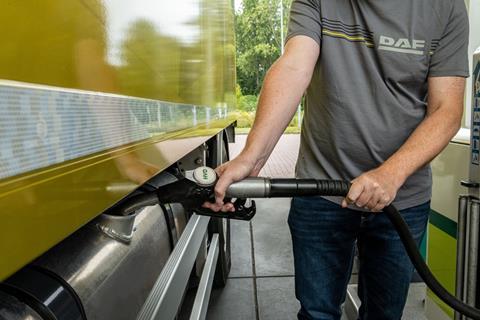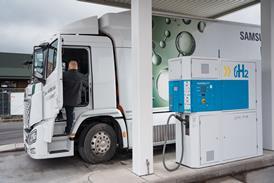DAF Trucks is taking significant steps towards reducing CO₂ emissions by preparing its combustion engines to utilize new eco-friendly fuels. Among these, Hydrotreated Vegetable Oil (HVO) stands out as the latest generation biofuel, capable of achieving up to 90% reduction in CO₂ emissions compared to regular diesel.

HVO is derived from waste products and fats sourced from the food industry, making it an environmentally responsible choice. Unlike previous biofuels, HVO has no impact on food production, further enhancing its sustainability. Importantly, DAF Trucks can utilise HVO without any modifications, maintaining their exceptional performance and service intervals of up to 200,000 kilometers for long-distance transport.
DAF’s full product range, including the LF series for distribution transport, the versatile XD (recognised as the ‘International Truck of the Year 2023’) for various applications, and the ‘top-of-the-range’ XF, XG, and XG+ (acknowledged as ‘International Truck of the Year 2022’) for heavy and long-distance haulage, are all HVO-ready.
Patrick Dean, Chief Engineer at DAF Trucks and member of the Board of Management, emphasised DAF’s commitment to reducing CO₂ emissions, showcasing their introduction of fully electric trucks in 2018 and the recent launch of a new generation of electric trucks boasting ‘zero-emission’ ranges of up to 500 kilometers. With HVO integration, DAF aims to make significant strides in reducing CO₂ emissions, both in the existing truck fleet and ‘well-to-wheel.’ Dean further advocates for European legislation to recognise the value of clean fuels in CO₂ emission reduction, highlighting the importance of focusing on the entire energy chain from source to exhaust, rather than just ‘tank-to-wheel,’ to achieve sustainable road transport.


















